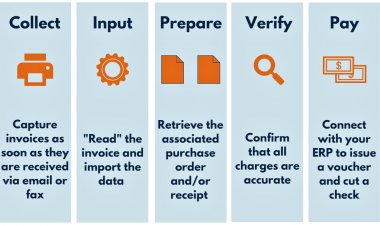Cybercriminals and hackers are moving their concentration to independent ventures for some, reason, read on to discover what you need to know, and how to shield your business from cyber threats. Web Security Threat Report says that 1 out of 40 independent ventures is in danger of cybercrime, considerably less than the number of enormous organisations. The current statistics reveal the cyber threat towards small businesses has risen over the past years. While there are innumerable reasons why a cybercriminal may focus on a private venture, there are a couple of reasons specifically that entrepreneurs ought to know about. The following is the rundown of the best 7 reasons why digital threats are focusing on independent ventures.
1. No IT Division
More modest organisations are considerably more liable to have restricted or no IT division or workforce. This implies that gadgets, organisations, sites, and workers are reasonably not modern on updated procedures, as they fail to update software for programming and in their devices, the small businesses are becoming prey to the hackers and hence being hacked for the weak foundation system.
2. Simple Network systems.
Smaller businesses have much simpler networks than larger businesses. an outsized business may have an area filled with servers, or quite one room of servers, linking hundreds or thousands of computers and devices dedicated to varied tasks. A smaller business may have just one server if any in the least, and a couple of computers and devices with a way less sophisticated set-up that's easier to hack.
3. Less likely to follow Internet Best Practices.
Small business may be a tough game. most frequently employees are forced to wear a spread of hats, shuffling from one job to subsequent, often mingle personal life with work, and roll in the hay all on a shoestring budget. If the business owners and employees are tech-savvy it's likely they're not following best practices when using the web and their networks, opening themselves up to attack.
4. Making use of the Cloud
Small businesses may rely on the cloud more extensively than bigger enterprises with their own IT infrastructure. Every time you use the cloud to access, save, or exchange information, you put your data, network, and organisation at risk. Then there's the possibility that the data centre hosting the cloud may be targeted, attacked, and breached completely.
5. Using Third-party Applications, Websites, SaaS, and PaaS
Small firms are more likely than bigger enterprises to use a third-party software suite, website, SaaS, or PaaS. A proprietary or in-house solution is more likely in a large company. Using a third-party solution to meet a digital requirement through the Internet puts your company at risk in a variety of ways. There's the connectivity itself, which could or might not be safe, and then there's the possibility that hackers would target that service and use it as a doorway into your company's gateway computer network.
6. Large Analytics
There's a lot of data. Data is accessed, adverts are viewed, sites are liked, and accounts are formed each time a website is visited, and data is produced. The ordinary small firm may see up to a quarter-million of these occurrences every day, with no means of knowing which are genuine and which are not, and even if they did, there would be little time to act. The big company now has the power of big data analytics at its fingertips, allowing it to detect and respond to cyber threats in real-time, rather than waiting for them to materialise.
7. Prime Catch
No matter how you look at it or why cyber attackers find it simpler to attack small businesses than large corporations. Big firms have the time, money, and resources to secure themselves, their networks, and their data using cutting-edge technology. Smaller firms do not, and this is what distinguishes them. This isn't to suggest that a small firm can't be cyber secure; it can, and it isn't as difficult as it may appear. Furthermore, there are many more small businesses than major enterprises, making it much easier to target them. Small firms have been described as being in a hacker's "sweet zone," with more assets than a person but considerably less protection than a large corporation, according to analysts.
Tips for Cybersecurity Protection
- Always utilise in-house servers for your data and websites if at all possible.
- Firewalls should always be used.
- Use anti-virus and anti-malware software at all times.
- When it comes to email attachments, be cautious.
- There should be no personal devices authoris+ed.
- Make sure you are not connected to external Wi-Fi.
- Passwords should be changed on a frequent basis.
- Make a copy of your data.
- Encrypt your data.
- Use a virtual private network (VPN).


 Mr.Biller Team
Mr.Biller Team 































